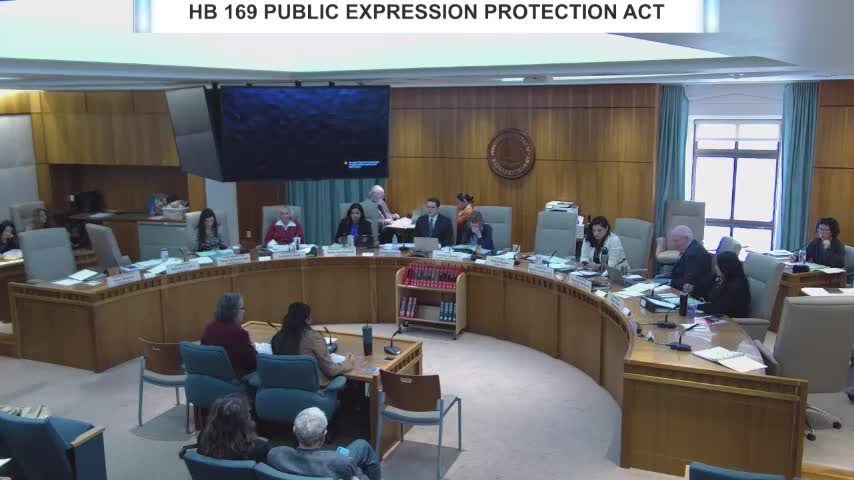Supporters press for anti‑SLAPP bill to protect public speech; committee will reschedule consideration
Get AI-powered insights, summaries, and transcripts
Subscribe
Summary
Public commenters and several organizations urged the House Judiciary Committee to adopt the Public Expression Protection Act (anti‑SLAPP). The committee heard supportive testimony from advocates and media representatives but did not vote and said it would reschedule consideration to accommodate scheduling and draft review.
The House Judiciary Committee heard a series of supportive public comments on a committee substitute titled the Public Expression Protection Act (commonly described as an anti‑SLAPP measure) and agreed to reschedule formal consideration to allow the committee time to review the circulated language.
Sponsor remarks and intent
The sponsoring representative introduced the committee substitute as a measure to protect individuals, journalists and community organizations from meritless lawsuits that aim to chill speech on matters of public concern. The sponsor said the proposal would expand New Mexico’s existing, narrow statute to align with the uniform anti‑SLAPP model used by states that have adopted broader protections.
Public testimony
Supporters included representatives of environmental and civic organizations and legal advocates. Mariela Nassy of New Energy Economy urged the committee to adopt the bill, noting it had passed unanimously in another state. Civil‑rights attorney Jeffrey Haas said the bill “prevents people from continuing with frivolous lawsuits” and protects speakers in a polarized environment. Brian Fano of the Albuquerque Journal said the measure would strengthen First Amendment protections for the public and the press. Youth climate organizer Fennel Rowley and Norm Gomm of New Mexico Water Advocates also spoke in favor.
Why it matters: Backers said a broader anti‑SLAPP law would provide a faster mechanism to dismiss meritless suits brought to silence critics, neighborhood groups, journalists and small organizations that lack legal resources.
Committee process
The committee limited public comment to five in‑room speakers and additional online comments. Committee members did not take a vote; the sponsor and staff indicated the matter will be scheduled for further committee consideration, with timing to accommodate committee workload and the availability of out‑of‑state witnesses.
Ending
Committee staff and leadership said they plan to reschedule the bill to ensure members and out‑of‑town witnesses can participate and to give analysts time to review the substitute language before a vote.
